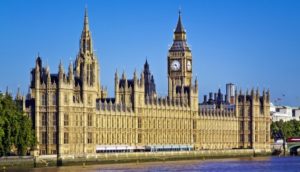
During last summer as my mind wandered to a chilled Burgundy in the land of Rousseau and Voltaire it was the more recent French radical controversialist, Jacques Derrida, whose work seemed germane as our nation faced unprecedented political choppy waters. Derrida, the twentieth century Jewish-atheist, French-Algerian, post-structuralist was a philosopher who relished contradictions though, in his later, more political thinking, not for their own sake or as fashionable ‘left-bank’ philosophy, but rather as an antidote to a world dominated by the hubris of short-term ‘solutions’, so often benefiting the strong to the cost of the weak. Derrida’s method was to construct thorough readings of philosophical and literary texts, to determine what aspects of those texts run counter to their apparent structural unity or original intention. By demonstrating the contradictions -the aporias,or impasses – in much of what we think – he aimed to show the infinitely subtle ways in which apparent resolutions collapse into themselves, morph and transform. And never more so than when thinking about democracy.
First there is the aporia of democracy and sovereignty. Democracy – the will of the people – immediately has to collapse into the exercise of sovereignty; of power exercised by the few. To protect the demos, the process must be curtailed, limited. Whether it be curtailed to include – through the exclusion of the ‘other’ – the card carrying conservative or labour party voters on the one hand or, to exercise the power to say No to a second referendum. Democracy is as much about exclusion and (dis-)entitlement as it is about franchise. And democracy contains the seeds of its own destruction.
Second, the aporia of democracy and freedom. Democracy requires freedom, however (mis-) understood. Should card-carrying labour party members enjoy an additional freedom to vote for their leader not enjoyed by the [democratically elected] parliamentary labour party whose role, partly, is to secure power so as to make changes it perceives as ‘for the good’? And in the Brexit debate, how free were voters when the information they used to make an ‘informed’ choice– a key element in the exercise of freedom – is subject to the warp and refraction of the lens of the media? And how is freedom understood differently when the immigrant is perceived as the one providing an essential service [whether in the NHS or as, perhaps, one’s nanny]as against those who, right or wrong, perceive the same as a threat to their economically precarious and socially excluded position. Freedom is not satisfied by the existence of the ballot box.
Finally, in the employment of the In-Out referendum we have seen not an exercise of pure democracy but a fundamentally mistimed exercise of sovereign power. The sovereignty was the Government’s power to ‘grant’ the referendum at the time and in the form it was placed. It was curtailed, highly managed ‘democracy’ offered by and on the terms of the few which, on this occasion, back-fired spectacularly.
To use Derrida’s language, democracy is never present but is always deferred. In its claim to presence (“this is democracy here-and-now”) democracy evokes the sovereignty that calls forth its destruction. While democracy may be the best we have, it must remain subject to a critical eye and not become a secular deity.